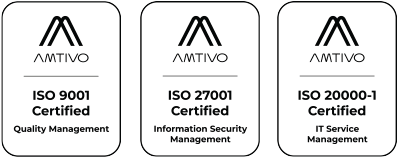NIST Cybersecurity Framework Services
Prepare for cybersecurity threats and establish recovery strategies in case of a breach
The NIST Cybersecurity Framework (CSF) Services provide organisations with a structured approach to managing and improving their cybersecurity posture. Developed by the National Institute of Standards and Technology (NIST), the framework consists of five core functions: Identify, Protect, Detect, Respond, and Recover. These functions help organisations understand their cybersecurity risks, implement protective measures, detect potential threats, respond to incidents, and recover from disruptions effectively.
NIST CSF Services include tailored assessments, implementation guidance, and continuous monitoring to align an organisation's cybersecurity practices with industry standards. The framework is adaptable to various sectors and is designed to integrate with existing risk management processes. It also helps organisations prioritise their security investments based on potential impacts and threats.
By leveraging NIST CSF Services, organisations can enhance their resilience against cyber threats, ensure compliance with regulatory requirements, and build a culture of continuous improvement in cybersecurity. This structured approach is critical for safeguarding sensitive information and maintaining trust in digital operations.
The 5 Pillars of NIST CSF
-
Identify
-
Protect
-
Detect
-
Respond
-
Recover
From small nonprofits to large corporations, NIST CSF helps build robust cybersecurity infrastructure and reduce the risk of breaches. Besides being a leading guideline for cybersecurity preparedness, it also offers a common language for different organisations to communicate during cyberattacks. While adherence to the framework is not legally mandated, many organisations choose to follow it voluntarily due to its high standards for cyber security.
Gartner Recognised
We are thrilled to share that Integrity360 has been recognised as a Gartner Representative Vendor in 5 of their Market Guides, including: Managed Security Services, Managed Detection and Response, Gartner's Market Guide for Co-Managed Security Monitoring Services and Managed SIEM Services.
Gartner has included a range of providers within its market guide for managed services to ensure clear coverage from a geographical, vertical and capabilities perspective. Those included in the Gartner market guide display clarity in the vision for an end-user outcome-focused offering distinct from a pure technology-driven offering.

Speak to an expert
London: +44 20 3397 3414
Sofia: +359 2 491 0110
Cape Town: +27 08 606 25673
Johannesburg: +27 08 606 25673
NIST Cybersecurity Framework Services FAQs
What is the NIST Cybersecurity Framework (CSF)?
The NIST CSF is a widely adopted set of cybersecurity guidelines developed by the U.S. National Institute of Standards and Technology. It provides a structured approach to managing and reducing cyber risk through five core functions: Identify, Protect, Detect, Respond, and Recover.
Who should use the NIST CSF?
The NIST CSF is suitable for organisations of all sizes and sectors, including public and private entities. It is especially valuable for regulated industries, critical infrastructure, and organisations seeking to build a cyber security programme aligned to global best practices.
What services does Integrity360 offer around the NIST CSF?
Integrity360 provides assessments, implementation roadmaps, policy and control mapping, gap analysis, maturity benchmarking, and ongoing support. We help you align your cybersecurity programme with the CSF and demonstrate measurable improvement over time.
How is the NIST CSF structured?
The framework is organised into five core functions (Identify, Protect, Detect, Respond, Recover), which are further broken down into categories and subcategories. These help organisations understand their current state and set clear improvement goals.
Can the NIST CSF support compliance with other standards?
Yes. The NIST CSF is highly interoperable with frameworks like ISO 27001, PCI DSS, NIS2, and GDPR. It can act as a bridge between business objectives and technical controls, supporting multi-framework compliance strategies.
What is a NIST CSF gap assessment?
A NIST CSF gap assessment compares your organisation’s current security practices against the framework’s categories. It identifies strengths, weaknesses, and provides a prioritised roadmap for improving cyber resilience.
Is this service suitable for SMEs as well as enterprises?
Absolutely. The modular design of the NIST CSF allows it to scale to organisations of any size. Integrity360 tailors its support based on your business model, maturity level, and risk appetite.
What makes Integrity360’s NIST CSF support different?
Integrity360 offers more than theory. We provide practical guidance from experienced cyber professionals, focusing on real-world implementation, executive-level communication, and sustainable cyber resilience aligned to the NIST CSF.




